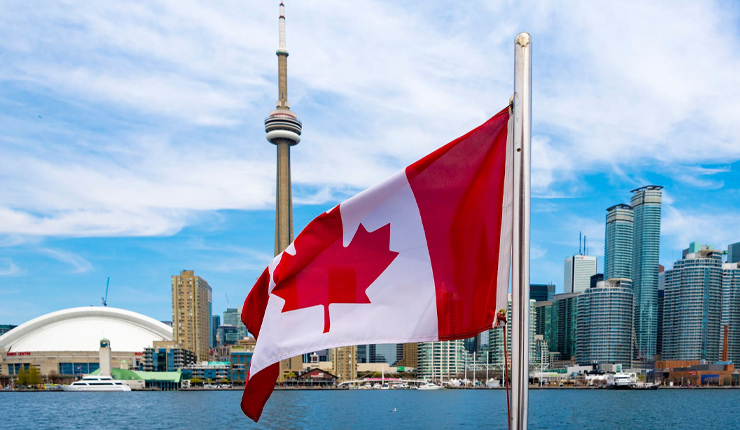Canadian inflation declines to 5.9% in January
Canada’s inflation shows a decline by 5.9 percent in January, according to data released on Tuesday, allowing the Bank of Canada to stabilise interest rates during its next meeting.
Predictions were preparing for a decline in inflation from 6.3 percent to 6.1 percent in December. Consumer price index rose months later by 0.5 percent, which is lower than expectations of a 0.7 percent gain, said Statistics Canada.
“The inflation figure allows the Bank of Canada to stay on hold in March, despite the fact that the labour market was extraordinarily hot in the month of January,” said Andrew Kelvin, chief Canada strategist at TD Securities.
The Bank of Canada raised its benchmark interest rate in January to 4.5 percent, the highest in 15 years, and became the first major central bank to hold further hikes, as long as prices eased.
Canada’s economy exceeded expectations by adding a new 15,000 jobs in January, according to earlier data.
After the stabilisation, money markets have an 80 percent chance of another rate increase this year, they were 100 percent before.
The bank predicts an inflation decline of about 3 percent by the end of 2023’s first half to reach its targeted 2 percent by next year.
“The January inflation figures give the Bank of Canada somewhat greater comfort in their decision to go on pause at least temporarily,” said Doug Porter, chief economist at BMO Capital Markets.
Data shows faster decline in Canadian prices than in the United States, where annual inflation reached 6.4 percent in January. Goldman Sachs and Bank of America expect the U.S. Federal Reserve to increase interest rates three more times this year.
The Bank of Canada’s policy-setting path can diverge from other global central banks, with the steady rates of inflation, said Bank of Canada Deputy Governor, Paul Beaudry on Friday.
With the low inflation rates, cellular services had a 7.9 percent annual fall in January, after having a 2.5 percent increase in December, while consumers paid 6.2 percent more for vehicles, after the number reaching 7.2 percent in December.
Despite that, mortgage interest costs saw an annual incline of 21.2 percent in January, the highest since 1982, with an increase of food prices by 10.4 percent, after its previous increase of 10.1 percent in December.
The next inflation report will come out after the Central Bank’s next policy-setting meeting on March 8, Reuters stated.
In January 2022, prices hiked during the Russian-Ukraine tension and supply chain disruptions, and they reached a peak of 8.1 percent in June.


